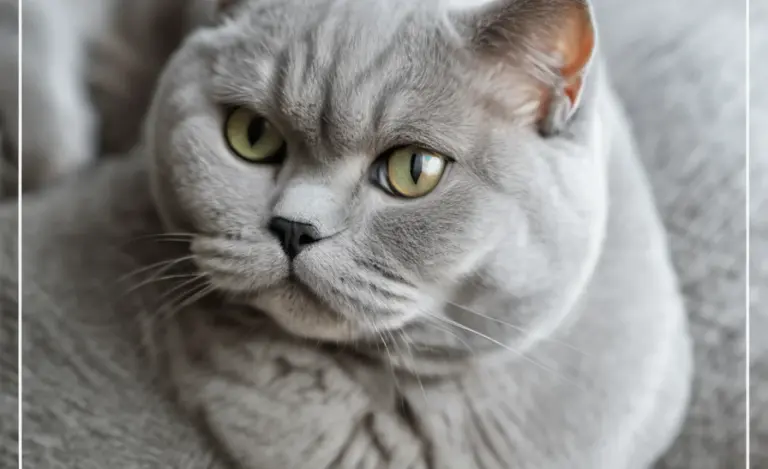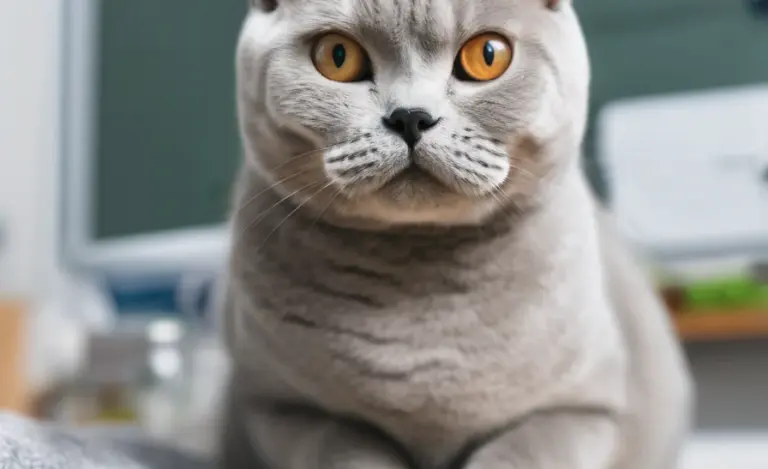Supplements to Boost Immunity in British Shorthairs!
Supplements to Boost Immunity in British Shorthair Cats: A Complete Guide
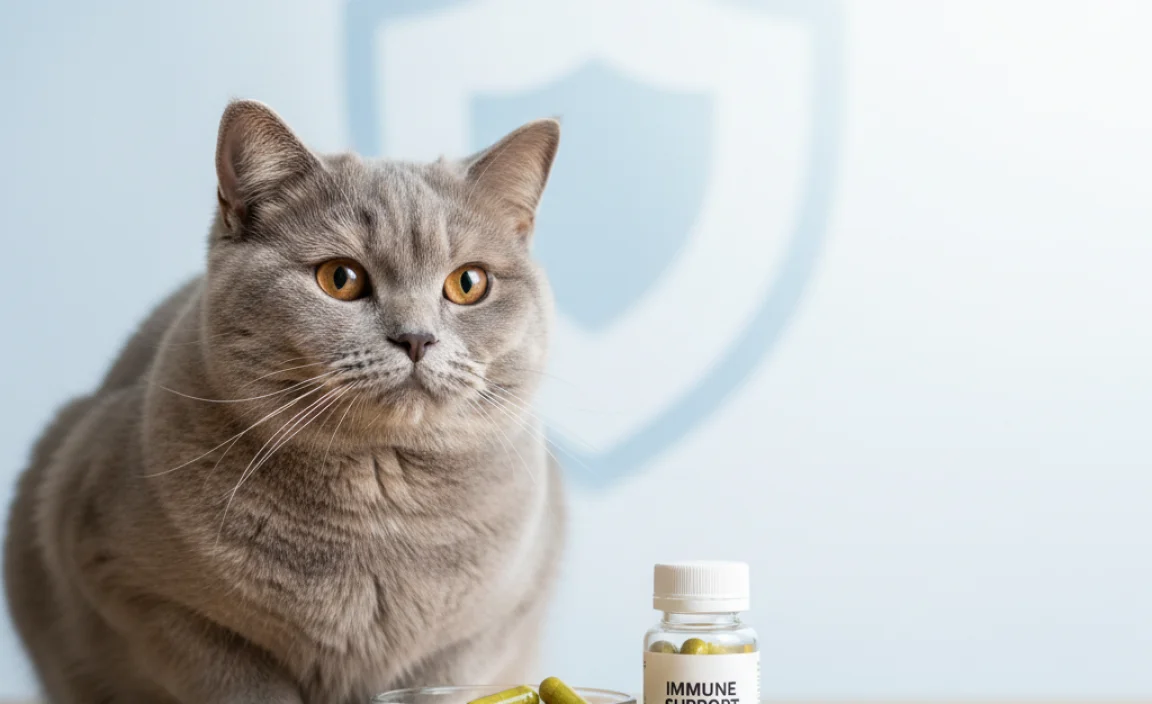
Quick Summary: To boost your British Shorthair’s immunity, consider supplements like L-lysine (for herpesvirus), omega-3 fatty acids (for overall health), probiotics (for gut health), and antioxidants like Vitamin E and C. Always consult your vet before introducing any new supplement to ensure it’s safe and appropriate for your cat’s specific needs. A balanced diet, stress reduction, and regular vet check-ups are also essential for a strong immune system.
Is your British Shorthair catching every little sniffle that goes around? It’s tough seeing our furry friends feeling under the weather. As a breed, British Shorthairs are generally robust, but like all cats, they can have dips in their immunity. Boosting their immune system can help them stay healthy and happy. It’s not just about treating sickness; it’s about preventing it. Let’s explore how supplements can play a vital role in keeping your British Shorthair in tip-top shape. We’ll look at which supplements are most effective, how to use them safely, and other ways to support your cat’s health. Get ready to learn how to give your British Shorthair the best possible protection!
Understanding Your British Shorthair’s Immune System
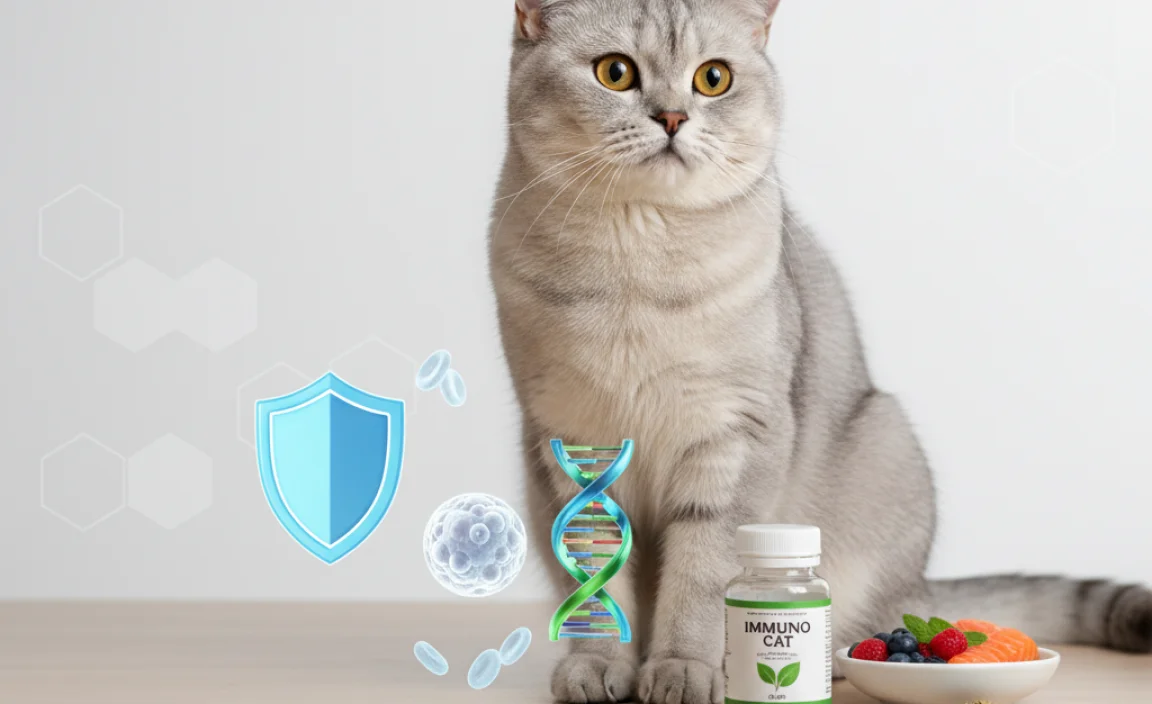
Before diving into supplements, let’s understand the basics of your British Shorthair’s immune system. Think of it as their personal bodyguard, always on alert to protect them from harmful invaders. A healthy immune system is crucial for fighting off infections, viruses, and other illnesses.
The Key Players
Your cat’s immune system is a complex network of cells, tissues, and organs working together. Here are some key players:
- White Blood Cells: These cells identify and destroy harmful substances in the body.
- Antibodies: Proteins that recognize and neutralize specific invaders, like viruses or bacteria.
- The Gut Microbiome: The balance of good and bad bacteria in the gut plays a huge role in immunity.
- The Spleen and Lymph Nodes: These organs filter the blood and lymph fluid, removing harmful substances.
Factors Affecting Immunity
Several factors can weaken your British Shorthair’s immune system:
- Age: Kittens and senior cats often have weaker immune systems.
- Stress: Stress can suppress the immune system, making your cat more vulnerable to illness.
- Poor Diet: A lack of essential nutrients can weaken the immune system.
- Underlying Health Conditions: Some conditions, like feline leukemia virus (FeLV) or feline immunodeficiency virus (FIV), can compromise immunity.
Top Supplements to Boost Immunity
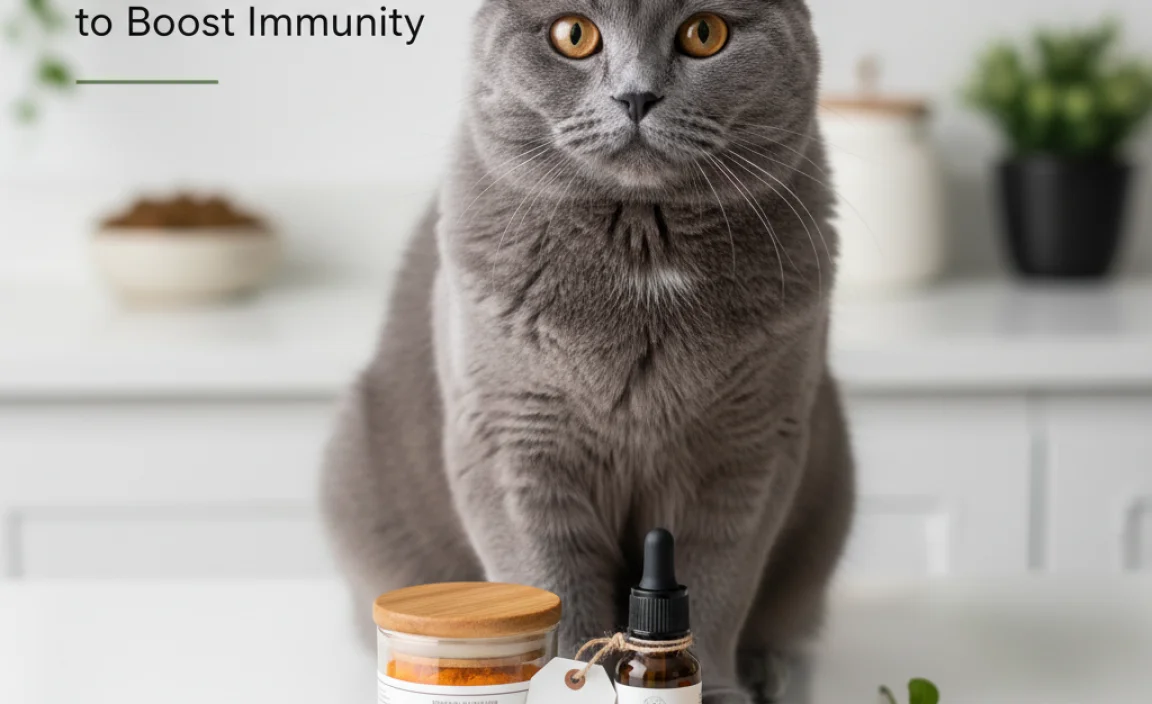
Now, let’s get to the heart of the matter: which supplements can help boost your British Shorthair’s immunity? It’s always best to consult with your vet before starting any new supplement, but here are some well-researched options.
1. L-Lysine
L-lysine is an amino acid that’s particularly helpful for managing feline herpesvirus (FHV-1), a common cause of upper respiratory infections in cats. FHV-1 can cause sneezing, congestion, and eye discharge.
How L-Lysine Works
L-lysine interferes with the replication of the herpesvirus, reducing the severity and frequency of outbreaks. It doesn’t eliminate the virus, but it helps keep it under control.
Dosage and Administration
The typical dose of L-lysine for cats is 250-500 mg per day. It’s available in powder, capsule, and treat forms. You can mix the powder with your cat’s food or give them a treat containing L-lysine. Always follow your vet’s specific recommendations.
Benefits of L-Lysine
- Reduces the severity of herpesvirus outbreaks
- May help prevent recurrent upper respiratory infections
- Relatively safe with few side effects
2. Omega-3 Fatty Acids
Omega-3 fatty acids, particularly EPA (eicosapentaenoic acid) and DHA (docosahexaenoic acid), are essential for overall health and can significantly boost the immune system. These fatty acids are found in fish oil and flaxseed oil.
How Omega-3 Fatty Acids Work
Omega-3s have anti-inflammatory properties, which can help reduce chronic inflammation and support immune function. They also play a role in maintaining healthy skin and coat, which is an important barrier against infection.
Dosage and Administration
The recommended dose of omega-3 fatty acids varies depending on the product and your cat’s weight. A general guideline is 20-55 mg of combined EPA and DHA per pound of body weight daily. Fish oil capsules or liquid are the most common forms. Add the liquid to their food or give them the capsule directly if they tolerate it. Always consult your veterinarian for the correct dosage.
Benefits of Omega-3 Fatty Acids
- Reduces inflammation
- Supports a healthy immune system
- Improves skin and coat health
- May help with joint pain
3. Probiotics
Probiotics are beneficial bacteria that support a healthy gut microbiome. A balanced gut microbiome is essential for a strong immune system, as much of the immune system resides in the gut.
How Probiotics Work
Probiotics help maintain a healthy balance of bacteria in the gut, which can improve digestion, nutrient absorption, and immune function. They can also help prevent harmful bacteria from taking over.
Dosage and Administration
Probiotics come in powder, capsule, and chewable forms. Look for a probiotic specifically formulated for cats. Follow the product’s instructions for dosage. You can mix the powder or capsule contents with your cat’s food. Many vets recommend giving probiotics during and after antibiotic treatment to restore the gut microbiome.
Benefits of Probiotics
- Improves digestion
- Boosts the immune system
- Helps prevent diarrhea and other digestive issues
- Supports nutrient absorption
4. Antioxidants (Vitamin E and Vitamin C)
Antioxidants help protect cells from damage caused by free radicals, which are unstable molecules that can harm the body. Vitamin E and Vitamin C are two important antioxidants that can support your British Shorthair’s immune system.
How Antioxidants Work
Antioxidants neutralize free radicals, preventing them from damaging cells. This can help reduce inflammation and support overall health.
Dosage and Administration
Vitamin E: A typical dose is 10-20 IU per day. Vitamin C: A typical dose is 25-50 mg per day. These vitamins are often included in cat multivitamins. You can also find them as individual supplements. Add the supplement to your cat’s food or give it directly. Consult your veterinarian for the right dosage.
Benefits of Antioxidants
- Protects cells from damage
- Reduces inflammation
- Supports a healthy immune system
- May help slow down the aging process
5. Colostrum
Colostrum is the first form of milk produced by mammals after giving birth. It’s rich in antibodies and immune-boosting factors.
How Colostrum Works
Colostrum provides a concentrated dose of antibodies that can help protect against infections. It also contains growth factors that support the development of a healthy immune system.
Dosage and Administration
Colostrum supplements are available in powder and capsule forms. Follow the product’s instructions for dosage. You can mix the powder with your cat’s food or give them the capsule directly. Colostrum is particularly beneficial for kittens and cats with weakened immune systems.
Benefits of Colostrum
- Provides antibodies for immune support
- Supports the development of a healthy immune system
- May help prevent infections
- Beneficial for kittens and cats with weakened immunity
Supplement Comparison Table
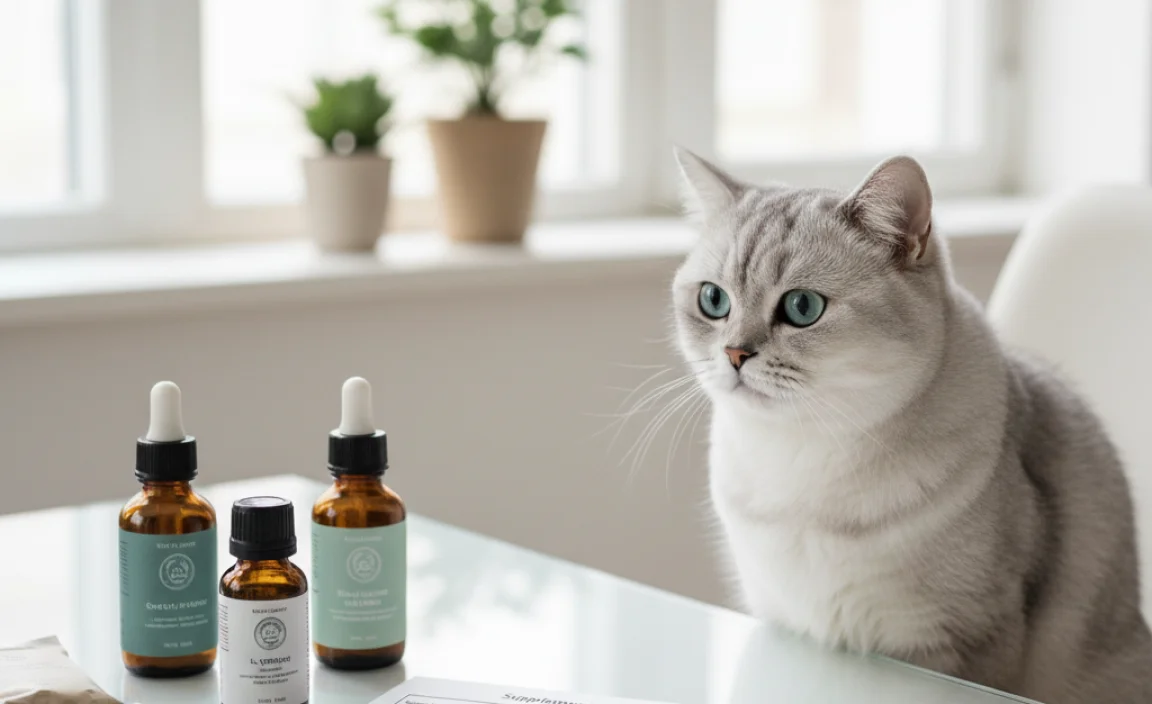
Here is a quick comparison of the supplements we’ve discussed:
| Supplement | Benefits | Dosage | Form |
|---|---|---|---|
| L-Lysine | Reduces herpesvirus outbreaks | 250-500 mg per day | Powder, capsule, treat |
| Omega-3 Fatty Acids | Reduces inflammation, supports skin and coat | 20-55 mg EPA/DHA per pound of body weight daily | Capsule, liquid |
| Probiotics | Improves digestion, boosts immunity | Follow product instructions | Powder, capsule, chewable |
| Vitamin E | Protects cells from damage | 10-20 IU per day | Capsule, liquid |
| Vitamin C | Protects cells from damage | 25-50 mg per day | Capsule, liquid |
| Colostrum | Provides antibodies, supports immune development | Follow product instructions | Powder, capsule |
How to Choose the Right Supplements
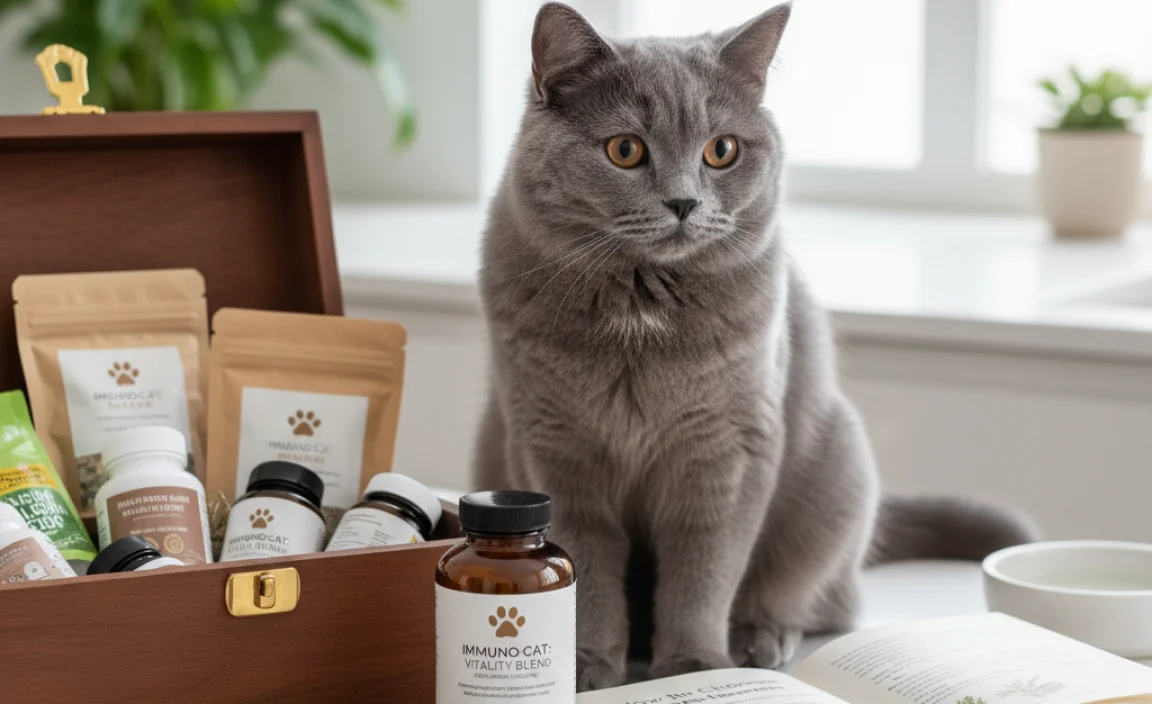
With so many supplements available, how do you choose the right ones for your British Shorthair? Here are some tips:
- Consult Your Veterinarian: This is the most important step. Your vet can assess your cat’s individual needs and recommend the most appropriate supplements.
- Read Labels Carefully: Look for supplements that are specifically formulated for cats. Check the ingredients list and make sure there are no harmful additives.
- Choose Reputable Brands: Buy supplements from trusted brands that have a good reputation for quality and safety.
- Consider Your Cat’s Specific Needs: Does your cat have a history of herpesvirus outbreaks? Do they have digestive issues? Choose supplements that target their specific needs.
- Start Slowly: When introducing a new supplement, start with a low dose and gradually increase it over time. This will help you monitor your cat for any adverse reactions.
Other Ways to Support Your British Shorthair’s Immunity
Supplements are a great tool, but they’re just one piece of the puzzle. Here are other ways to support your British Shorthair’s immunity:
1. Provide a Balanced Diet
A high-quality diet is the foundation of a strong immune system. Look for a cat food that is rich in protein, essential fatty acids, and vitamins and minerals. Avoid foods with artificial colors, flavors, and preservatives. Royal Canin British Shorthair Adult Dry Cat Food is specially formulated for the breed.
2. Reduce Stress
Stress can weaken the immune system, so it’s important to create a calm and comfortable environment for your cat. Provide them with plenty of enrichment, such as toys, scratching posts, and climbing structures. Make sure they have a safe and quiet place to retreat when they feel overwhelmed. Feliway diffusers can also help reduce stress by releasing synthetic feline pheromones.
3. Ensure Regular Exercise
Regular exercise helps keep your cat healthy and strong. Encourage them to play by using interactive toys like wand toys or laser pointers. Provide them with opportunities to climb and explore. A cat wheel can be a great way to help them burn energy, especially if they’re indoor cats.
4. Maintain Good Hygiene
Good hygiene can help prevent the spread of infections. Keep your cat’s litter box clean and scoop it daily. Wash their food and water bowls regularly. Bathe them as needed, but be careful not to over-bathe them, as this can dry out their skin. The RSPCA recommends regular grooming to maintain coat health.
5. Schedule Regular Vet Check-ups
Regular vet check-ups are essential for monitoring your cat’s health and catching any potential problems early. Your vet can perform a physical exam, run blood tests, and check for any signs of illness. They can also provide advice on diet, supplements, and other ways to support your cat’s health. The International Cat Association (TICA) suggests annual checkups for adult cats and more frequent visits for kittens and seniors.
Potential Risks and Side Effects
While supplements are generally safe, it’s important to be aware of potential risks and side effects:
- Digestive Upset: Some supplements can cause diarrhea, vomiting, or other digestive issues. Start with a low dose and gradually increase it to minimize the risk of these side effects.
- Allergic Reactions: Some cats may be allergic to certain supplements. Watch for signs of an allergic reaction, such as itching, hives, or swelling.
- Interactions with Medications: Some supplements can interact with medications. Be sure to tell your vet about all the supplements your cat is taking, especially if they’re also taking prescription medications.
- Overdose: Giving too much of a supplement can be harmful. Always follow the recommended dosage instructions.
If you notice any concerning symptoms after giving your cat a supplement, stop using it and contact your veterinarian.
FAQ: Boosting Your British Shorthair’s Immunity
1. Can I give my British Shorthair human supplements?
No, it’s generally not safe to give your British Shorthair human supplements. Human supplements may contain ingredients that are toxic to cats or may be dosed inappropriately. Always use supplements specifically formulated for cats.
2. How long does it take to see results from immunity supplements?
It can take several weeks or even months to see noticeable results from immunity supplements. Be patient and consistent with the supplements, and monitor your cat for any changes in their health.
3. Can I give my kitten immunity supplements?
Kittens can benefit from certain immunity supplements, such as colostrum and probiotics. However, it’s important to consult with your veterinarian before giving any supplements to a kitten. Kittens have different nutritional needs than adult cats, and some supplements may not be appropriate for them.
4. Are there any foods that can boost my cat’s immunity?
Yes, certain foods can help boost your cat’s immunity. Foods rich in antioxidants, such as blueberries and cranberries, can help protect cells from damage. Foods rich in omega-3 fatty acids, such as salmon and tuna, can help reduce inflammation. A balanced, high-quality diet is the best way to ensure your cat gets the nutrients they need for a strong immune system.
5. Can stress really affect my cat’s immune system?
Yes, stress can significantly impact your cat’s immune system. When cats are stressed, their bodies release cortisol, which can suppress immune function. Reducing stress is crucial for maintaining a healthy immune system.
6. My cat seems healthy. Do they still need immunity supplements?
Even healthy cats can benefit from immunity supplements, especially during times of stress or seasonal changes. Supplements can help provide an extra layer of protection and support overall health. However, it’s always best to consult with your veterinarian to determine if supplements are right for your cat.
7. What are signs that my British Shorthair has a weakened immune system?
Signs of a weakened immune system can include frequent infections, slow wound healing, loss of appetite, lethargy, and digestive issues. If you notice any of these signs, consult with your veterinarian.
Conclusion
Boosting your British Shorthair’s immunity is a proactive way to help them live a long, healthy, and happy life. By understanding the role of the immune system, choosing the right supplements, and providing a supportive environment, you can give your furry friend the best possible chance to thrive. Remember, always consult with your veterinarian before starting any new supplement regimen. A balanced approach, combining good nutrition, stress reduction, regular exercise, and veterinary care, is the key to a strong and resilient British Shorthair. Here’s to many years of purrs and cuddles with your beloved companion!

